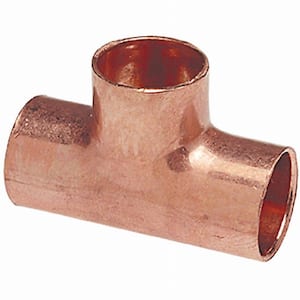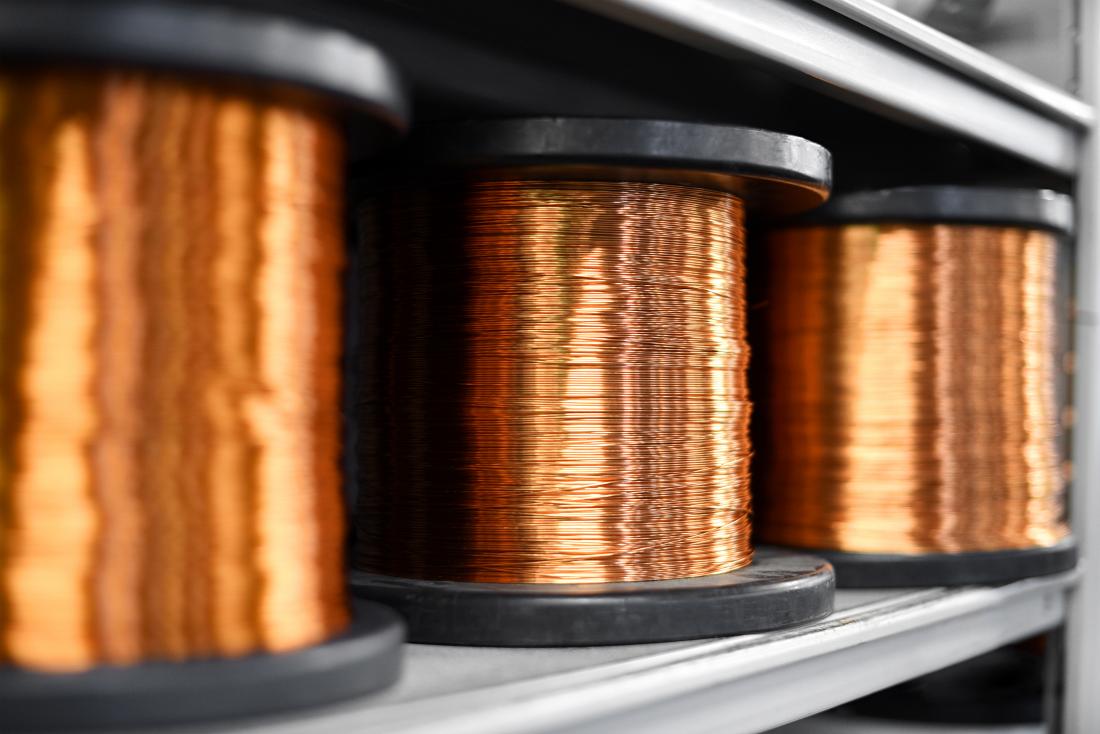Enhancing Your Kitchen Area with Costs Copper Products: Tips and Ideal Practices
Enhancing Your Kitchen Area with Costs Copper Products: Tips and Ideal Practices
Blog Article
Discovering the Diverse Applications of Copper Products in Modern Industries
From improving the effectiveness of electrical systems to playing a vital function in sustainable power modern technologies, the flexibility of copper is noticeable. As markets significantly prioritize development and sustainability, the diverse applications of copper necessitate a closer evaluation, particularly concerning their possible influence on future ecological techniques and technological innovations.
Electric Applications of Copper
Copper is an essential material in the electrical market, accounting for approximately 60% of the complete need for non-ferrous steels worldwide - Copper Products. Its premium electric conductivity, which is virtually twice that of light weight aluminum, makes it the favored choice for a large range of electric applications. From wiring systems in property and business buildings to high-voltage power transmission lines, copper makes certain effectiveness and reliability in electrical energy shipment
Along with circuitry, copper is integral to the manufacturing of electrical parts such as transformers, motors, and generators. These elements leverage copper's thermal conductivity and pliability, vital for heat dissipation and efficient efficiency. Copper's resistance to corrosion enhances the life-span and sturdiness of electric systems, making it a cost-efficient solution in the lengthy term.
The growth of renewable resource sources, such as solar and wind power, has additionally increased the demand for copper in electrical applications. As industries transition in the direction of sustainable power remedies, copper's function comes to be much more important. Overall, the adaptability and efficiency qualities of copper strengthen its status as a cornerstone material within the electrical sector, driving technology and effectiveness throughout different applications.
Pipes and Piping Solutions
In modern-day plumbing systems, the selection of products substantially impacts both performance and durability. Copper has actually emerged as a favored choice because of its unique properties, including corrosion resistance and antimicrobial features. These features make certain that copper piping remains safe and durable for delivering potable water, a critical consideration in property and commercial applications.
One of the crucial advantages of copper in plumbing is its ability to hold up against high temperatures and stress, making it ideal for a range of applications, from warm water systems to home heating and cooling networks. In addition, copper's versatility enables much easier setup in complicated piping designs, lowering the threat of failings and leaks.
Another noteworthy benefit is copper's long life-span, frequently going beyond 50 years with appropriate maintenance. This durability not just lessens substitute prices yet also adds to sustainable practices by reducing waste. Furthermore, copper's recyclability lines up with modern-day environmental criteria, advertising a circular economic situation within the plumbing industry.
Copper in Renewable Resource
The adaptability of copper extends past pipes applications, playing a vital duty in the eco-friendly energy industry. Its excellent electric and thermal conductivity makes it a vital product in the production and circulation of renewable resource resources, specifically solar and wind power. In solar panels, copper is utilized in solar batteries and circuitry, assisting in effective energy conversion and transmission. Its resistance to corrosion guarantees lasting Full Report performance, which is important for maximizing power outcome gradually.

Additionally, as the international need for electric cars (EVs) boosts, copper's function in battery systems and billing facilities comes to be much more substantial. The product's ability to conduct power efficiently is indispensable to the efficiency of EV batteries, boosting variety and charging speed.
Copper's Duty in Electronics
Electronic devices making counts heavily on copper's phenomenal homes, especially its high electrical conductivity and thermal efficiency. These qualities make copper a suitable choice for a variety of digital components, including adapters, motherboard, and circuitry. The metal's ability to effectively transmit electrical signals ensures very little power loss, which is critical Check This Out in high-performance digital tools.
Furthermore, copper's thermal conductivity plays a considerable duty in warmth dissipation, securing sensitive parts from overheating. This is specifically crucial in modern-day electronics, where small styles lead to raised heat generation. Copper is additionally preferred for its pliability and ductility, allowing it to be quickly formed into complex designs that fulfill the demands of innovative electronic applications.
With the rise of customer electronics, telecoms, and electrical cars, the need for copper in the electronics industry proceeds to grow. As innovations in innovation advance, copper stays indispensable to accomplishing greater performance and reliability in digital products. Its recyclability even more boosts its charm, as suppliers seek sustainable remedies without endangering quality. Hence, copper stays a keystone material in the ever-expanding field of electronic devices.
Innovative Uses in Manufacturing

One remarkable application remains in additive production, where copper-based materials are employed in 3D printing processes. This permits the development of light-weight components and complicated geometries, specifically in the aerospace and vehicle industries. Additionally, copper's thermal conductivity makes it a perfect option for warm exchangers, enhancing performance in industrial air conditioning systems.
Additionally, the surge of wise manufacturing has seen the consolidation of copper in IoT gadgets, where its a fantastic read conductive capabilities support sophisticated noticing innovations. In the world of renewable energy, copper is essential in the production of solar panels and wind turbines, facilitating a lot more efficient power conversion and circulation.
As industries strive for sustainability and development, copper's convenience and performance continue to position it as a crucial material, driving developments in production and adding to the development of smarter, more reliable products.
Conclusion
The essential function of copper in eco-friendly power and its crucial function in electronic devices underscore its relevance in progressing lasting practices. Jointly, these applications show copper's crucial payment to technical progression and industrial efficiency in modern society.
From boosting the performance of electric systems to playing an important duty in sustainable energy technologies, the adaptability of copper is obvious. As markets increasingly focus on technology and sustainability, the diverse applications of copper necessitate a closer examination, specifically concerning their potential influence on future technical innovations and environmental techniques.
The growth of eco-friendly energy resources, such as solar and wind power, has actually even more increased the demand for copper in electrical applications. Generally, the convenience and efficiency attributes of copper strengthen its status as a cornerstone material within the electrical sector, driving technology and efficiency throughout numerous applications.
The convenience of copper prolongs past plumbing applications, playing a vital function in the eco-friendly power industry.
Report this page